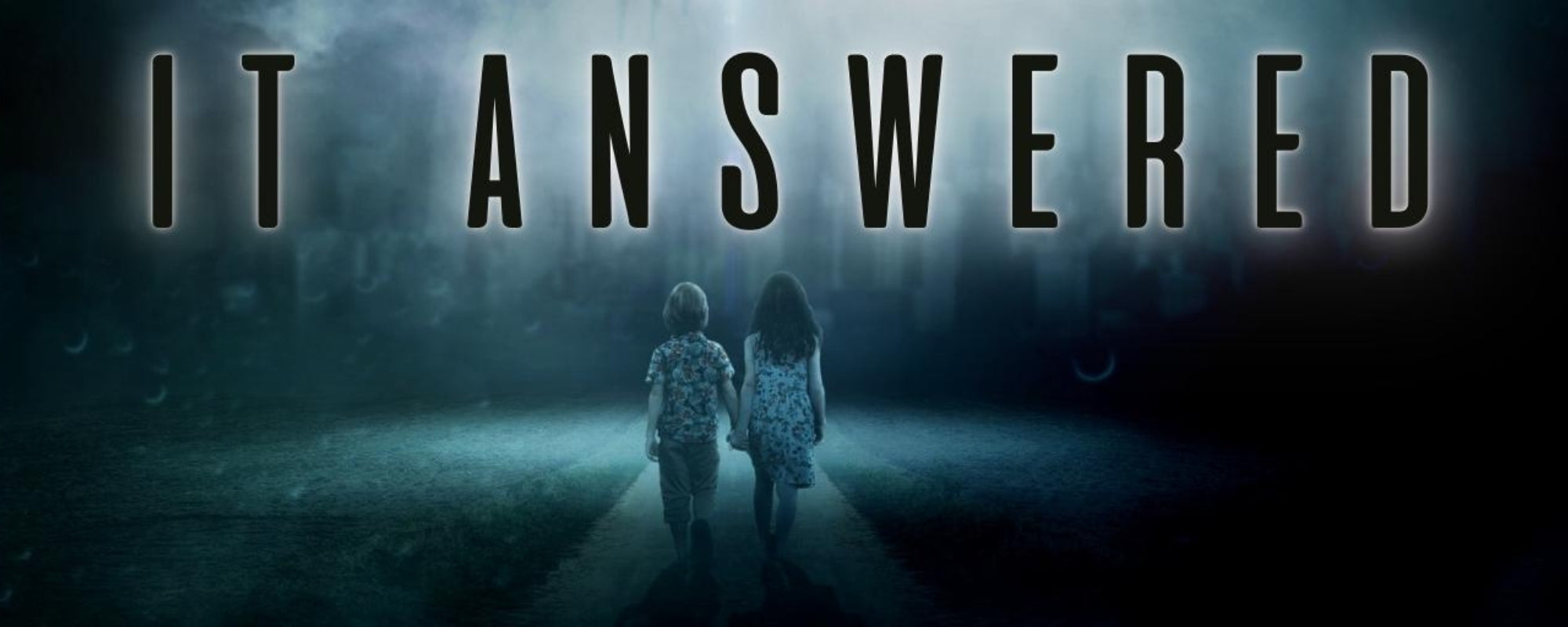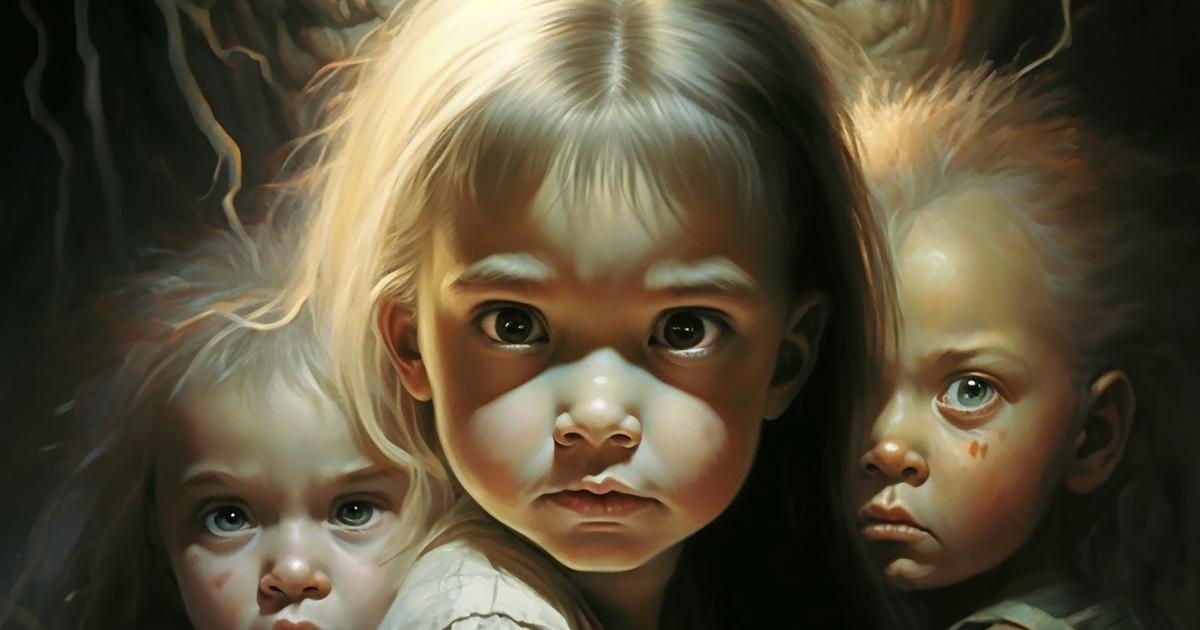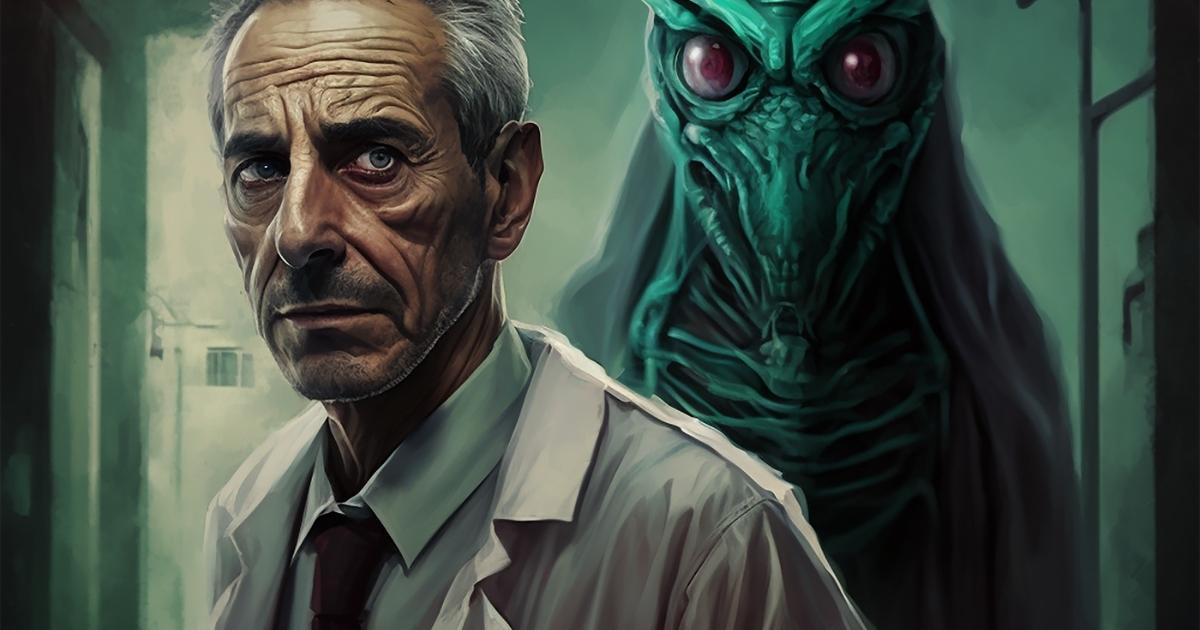

It Answered
By Anastasia Kirchoff
Some remember the procedure as an incision behind the ear. Others, as an injection, though this seems less likely. Eventually, we forget the joining. How It breached us. Our bodies do not bear the scar.
Its essence enters ours like an infection, a shivery fever dream. It submerges deep into the prefrontal cortex, coiling around the amygdala before settling into the memories. It rolls Its gentle influence through our minds, penetrating deeper. It locates a memory, the first time we tasted ice-cream as a baby, and pops it open. If not ice-cream, some sweet equivalent, flan or mochi or the delicate, golden flesh of passion fruit. Unfiltered joy, unspoiled by context, bleeds until our internal rivers fill with compassion and our sight tinges with rose.
It teaches us pleasure without pain, a tranquil realm we could never before access except through the destructive vaulting of extremes. We abandon the search for identity in the exhausting distance between opposing needs. We shed envy and pride, becoming a race of empathy. How can we not when we taste each other’s dreams and lick away each other’s tears? You can hurt the ones you love, but you cannot hurt the ones you know.
Some whisper about Its origins. Did It splinter from a star and plummet through our deteriorating atmosphere? Did It sense how profoundly we needed It and manifest Itself? Perhaps some clever machine evolved fertility and expelled It from a perfectly symmetrical womb on a slick of oil and sparks. One of us writes a popular tale in which It springs from a forgotten corner of the globe, a creature from another time bursting through a primordial vent in the earth. Others take to the streets, proclaiming with signs and raised voices that It was always here, neither alive nor machine, but a force of concealed potential and judgment whose siren call had until now fallen on deaf ears. Because we weren’t yet lost deeply enough. We weren’t yet unworthy enough.
None of us know the truth of Its genesis. None of us remember if Its arrival was gradual and inexorable—autumn leaves rotting beneath a crust of snow, dreaming of becoming spring soil—or if it was swift, the screech of breaks interrupting our uncontrolled downward trajectory.
Eventually, we stop caring to know.
Eventually, memories of before begin to dim. We forget the chaos, voices and fists that clashed and warred, each trying to subdue and dominate the other. That world was cacophonous and spiteful. It was clamor and friction, an endlessly molting metamorphosis of desire to satiation. Trapped in the nexus of the spiral, we could not sense the shape of our fall. As we forget, we draw closer and our boundaries weaken, grow insubstantial. Permeable. Our minds blend, and It pulses unendingly inside, a shaft of heat piercing the core of our growing harmony.
When the next generation is born, It is already with them. Surely It was with them in our wombs, humming a melody of the world to come. Whispering secrets and tales of forests that were nearly as ancient as It, of the strange and wonderful things we may encounter once the foliage is again able to breathe freely. To create breath in turn. It comforts us to know It will remain with our children long after we are gone. With their children too, and with their children’s children, down and down until the chain unravels.
We age, wrinkling like clothes forgotten overlong in the dryer. Though our bones embrittle and our breath sours, we do not fear. The specter of death no longer menaces us as he beckons insistently from the edge of his domain, because now we have a guide in even that shadowy realm. And so when our time expires, we stroll purposefully into that final dark. We harbor no selfish desire to linger, to peer fretfully back. We have done all we could to stitch closed the wound we left on the world. It could condemn us for having held the butcher’s blade. Perhaps it should. But it does not, and there is profound solace in Its absolution.
The sting of our last rattling exhalations fade quickly. The world was bright with pain, a universality we should have recognized in each other, but we were not creatures capable of the universal. And so we embrace the dark, because in it we are joined wholly as we could never have been in the flesh, an incandescent tide of murmurous souls, It our beating core and our shell and the endless waters in which we float. Symbiosis, merging and swirling, us inside of It and It inside of us, containing us, cradling us.
As we suspected, we hardly recognize our grandchildren. Its influence chisels the unnecessary parts of their flesh, erodes redundant folds in their brains, smooths them similar and compatible. Their movements become succinct, the steps of a collective dance. Their speech polishes and interlocks.
We witness this evolution in our sightless way, aching with something that might have been awe, had we still an endocrine system. But if by some unfortunate miracle we could be thrust back into our old flesh, we know the world would swiftly reject us as an incompatible organ, as a corruptive virus. Our barbaric stories would perturb the children. They would recoil from the angle of our noses, the heft of our tongues, the sharpness of our fingernails, and the leftover predator’s gleam of our eyes not yet erased. None of this unsettles us. We are observers now. We’d be proud of the new children, if we could feel pride.
Under their graceful care, the tar and smog of the world sloughs away. Flowers bud beneath their tread, kaleidoscopic hues we’d never experienced. The trees thrive and grow to brush the skirt of the swelling atmosphere. Perhaps their young would climb them, had they individual aspirations. Are they really children, our grandchildren’s offspring? They absorb generations of stories in the waters of their conception. They are born devoted. They erect altars of quartz, and they worship It by admiring their reflections, by exulting It’s continuing design on their cells.
The next generation is even more perfect. They glide through verdant lands, trailing oxygen from their pores, and their breath is redolent of clean air kissed by sweet blooms. Words fade as context and interpretation and miscommunication become extinct. Their thoughts are unanimous, a soundless song that praises It. They brim with Its melody, an exulting vibration that laces the air with diamond sparks. They have no questions and need no answers. Or perhaps they are the answer.
The world is a garden now. All but for one remaining blight, one faltering remnant of the scar we left behind. We, the first, built an ugly world before It corrected us, and a piece of it lingers like a heat rash after the fever had broken. Can our descendants sense it? Can they hear you, the ones who cling to the corpse of something long gone cold?
No, we don’t think so.
But we do. We hear how you condemn our children. You cry out like infants who don’t know what they need, only that they need. You mourn the loss of what you never truly knew, concepts gleaned only through stories: nail polish, pilgrimages to strange lands, sweating crowds beneath blasting music, competition and urgency and art that makes your soul ache. Your bodies are riddled with sarcasm and double meaning, the shaky sensation of healing after a cold, miscommunication and tears that can mean laughter or despair or love or all three. Your unions are frantic, incompatible, the grinding together of bodies and minds.
Your children will hurt simply from the act of being, as you did. As you do. This is the fate you pass down. This is your chain, each link breaking to make way for the next.
You know this.
We know you do.
We watch you bear children anyway, pushing them out on esoteric surges of blood.
Don’t you know that each of our children is capable of forever? Don’t you want to be united with yours in a world without end? It has given us this, and It could have given you this, too.
You speak a language that we understand. The old grating language of bones moving within the column of a throat. You call to our children, plead with them to spare the graveyard that you call home. They cannot hear in the old way, and we refuse to pass along your message. You are deviants, ripping at the world so that it fits you rather than molding yourself to fit. We would urge you to join us, if we could, because it’s not too late. Our children wouldn’t understand why you resist, but we do. We know that art springs from pain. That poetry and jazz and skydiving and sex are bandages for the universal unknowing. But what answers are left to seek?
We want to remind you, because either your grandparents did not teach you or you have forgotten. It—this—is what we prayed for.
We searched for this inside ourselves. We searched for this inside of others, entering with love or with knives. Back and back, we were plagued by fragility and impermanence, and so we sang sad songs, smeared paint on canvas, bore children that resembled us. In their eyes we saw only the same questions, the same doubts that we could ever be transfigured into beings capable of understanding. And so we cried and railed and made rubble of the world. We contorted ourselves in life so that we might slip through some secret door in death. We begged and pleaded, taught strangers to beg and plead, and when they wouldn’t listen, we forced them to their knees anyway until our whole world became a monument of need. And then—
It answered.
It has done even better than we asked.
So, why do you resist?
If you can hear us, please hush. Our children have never known the purpose of tears, and it is selfish of yours to try and remember.
Copyright © 2023 Anastasia Kirchoff
The Author

Anastasia Kirchoff


